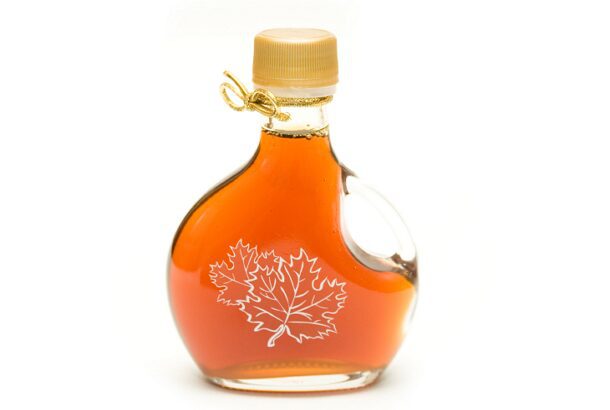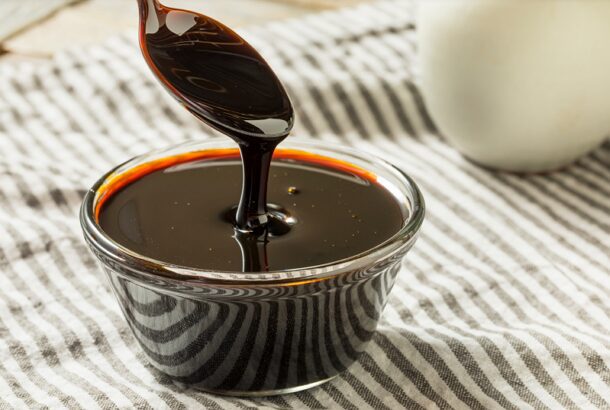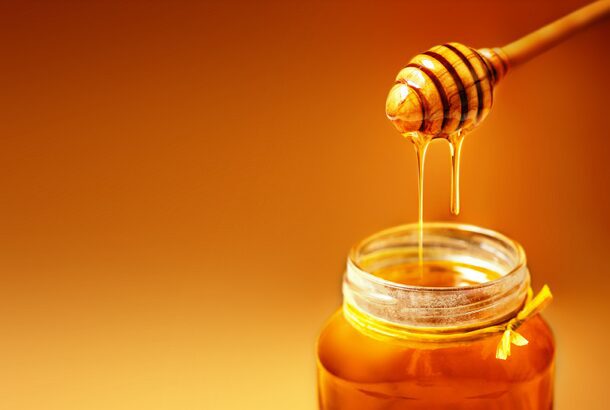Do you know that there are many honey substitutes you can use if you run out of honey? These substitutes might already be available in your pantry.
I’ve always been fascinated by the enormous diversity of ingredients that put up our kitchen shelves as someone who is enthusiastic about all things culinary. Honey stands out among these because of its distinct sweetness, natural healthiness, and adaptability in a variety of dishes.
But, in our ever-changing world, we have to explore options that address various nutritional demands, personal preferences, and environmental concerns. This brings us to the exciting world of honey substitutes.
In this post, we’ll go on a sweet adventure to find a variety of honey substitutes that might offer a wonderful flavor to your dishes. There are many alternatives to consider whether you are a health-conscious individual, a vegan, or simply want to expand your pantry.
These substitutes not only replicate the flavor and sense of honey, but they also have distinct properties and advantages of their own.
Throughout this post, we will look into many alternatives and I’ll give you helpful ideas on how to properly incorporate them into your favorite dishes.
So, join me on this enticing adventure as we explore the fascinating world of honey substitutes that will surely bring a touch of sweetness to your culinary ventures!
Related: Can You Microwave Honey? A Step By Step Guide
What Is Honey?

Honey, often referred to as nature’s golden elixir, is a remarkable substance that has fascinated humans for centuries. Produced by honeybees through a complex process, this sweet liquid has found its way into the hearts and kitchens of people worldwide.
The unique composition of honey contributes to its longevity and resistance to spoilage. It consists primarily of sugars such as fructose and glucose, which account for its sweet taste. However, honey is more than just a sweetener. It also contains trace amounts of vitamins, minerals, antioxidants, and enzymes.
From its captivating production process to its numerous health benefits, honey has rightfully earned its place as a cherished natural sweetener. Its versatility in recipes, soothing properties, and rich flavor make it a staple in cuisines across cultures.
So, next time you indulge in a spoonful of honey or drizzle it over your favorite dish, remember the intricate journey that transforms floral nectar into nature’s golden elixir.
Best Honey Substitutes
1. Maple Syrup

Maple syrup is a natural sweetener made from the sap of maple trees. It has a sweet flavor with a touch of caramel. I often used it as a topping for pancakes, waffles, and oatmeal.
How to use it: You can drizzle your maple syrup over your favorite breakfast foods, as a sweetener in baking goods, or mix it into sauces and dressings.
2. Agave Nectar
Agave nectar has a similar consistency to honey. This substitute has a mild taste, most vegan individuals used it as an alternative to honey.
How to use it: Perfect for beverages, desserts, and sauces. You can also use agave nectar as a substitute for honey in baking recipes.
3. Date Syrup
This syrup is made from dates and has a thick, syrupy consistency. It has a rich, sweet flavor reminiscent of caramel and molasses. It is a popular alternative for vegans and those looking for natural sweeteners.
How to use it: Use date syrup as a topping for pancakes, waffles, or yogurt. This syrup can also be used as a sweetener in baking or added to smoothies for added sweetness.
4. Coconut Nectar
Coconut nectar is a natural sweetener, it has a mild, caramel-like flavor and consistency. A popular choice for those following a vegan or paleo diet.
How to use it: Use this as a sweetener in tea, coffee, or smoothies. You can also use it in baking recipes or as a topping for desserts.
5. Molasses

This honey substitute is a thick, dark syrup produced during the sugar refining process. It has a robust, bittersweet flavor with notes of caramel and toffee. You can use it in baking and cooking.
How to use it: Use molasses in recipes such as gingerbread cookies, BBQ sauces, or marinades. It is best topping for pancakes or added to oatmeal for a rich flavor.
6. Brown Rice Syrup
Brown rice syrup is made from cooked brown rice and has a thick, sticky texture. It has a mild sweetness and a subtle butterscotch flavor. Brown Rice Syrup is a known sweetener in vegan and gluten-free baking.
How to use it: Use brown rice syrup as a sweetener in granola bars, energy balls, or homemade cereal bars. This is great in sauces and dressings as a substitute for honey.
7. Barley Malt Syrup
Barley malt syrup is produced by sprouting and malting barley, then cooking it down into a thick syrup. It has a distinctive malty flavor and a sticky consistency. It is often used in brewing and baking.
How to use it: Use barley malt syrup as a sweetener in bread recipes, cookies, or granola. You can drizzle it over pancakes or as a glaze for roasted vegetables.
8. Stevia
Stevia is a natural sweetener derived from the stevia plant. It is intensely sweet, even in small quantities, and has no calories. It is the healthiest substitute for beverages and baked goods.
How to use it: Use it as a sweetener in coffee, tea, or smoothies. Stevia can also be used in baking recipes, but remember that stevia is much sweeter than sugar, so adjust the quantity accordingly.
9. Sugar

White and brown sugar are excellent honey substitutes. Both dissolve quickly in all forms of cooking and are frequently used as flavor enhancers or ingredients.
Because normal sugar is not a liquid, you will need to add some water, milk, or eggs as your liquid. Sugar dissolves very well in hot water.
How to use it: When replacing honey with sugar, make careful to taste test as you go. This will assist to keep your recipe from being too sugary.
10. Monk Fruit
Monk fruit is also an all-natural sweetener that is considered sugar-free. It has a much closer taste to real sugar and does not have the bitter aftertaste of stevia. However, it is more expensive.
Monk fruit also adds a powerful punch of sweetness in small quantities, so it is best to read the package for substitutions.
How to use it: It is also recommended that it be used primarily to replace honey in small amounts.
What Is The Best Substitute For Honey?
Maple syrup is a popular honey substitute due to its natural sweetness and unique flavor. It is suitable for baking, cooking, and topping pancakes and waffles. Agave nectar, a vegan alternative, is another popular choice due to its mild flavor profile. Agave is slightly sweeter than honey, so it may need to be reduced by 25% when using it in baking or cooking.
Homemade Honey Substitute Recipe
If you run out of honey in your kitchen, preparing a honey substitute is simple, using only a few ingredients that you most likely already have in your cupboard.
Ingredients:
- 1 quart sugar
- 2 cups apple juice
- 1 teaspoon lemon juice
Procedures:
1. Simply put all of the ingredients in a medium-sized saucepan and whisk until the sugar dissolves.
2. Bring the mixture to a boil and continue to simmer for about 15 minutes, or until thickened.
3. Allow it to cool fully before transferring it to a jar or bottle.
4. You now have a tasty honey alternative that you can use in a variety of dishes.
FAQs
Why would someone use a honey substitute?
There can be several reasons for using a honey substitute. Some people may prefer to avoid honey due to dietary restrictions like veganism, allergies, or personal preferences. Others may use substitutes to reduce caloric intake or to achieve specific flavors in recipes.
Are honey substitutes as sweet as honey?
Honey substitutes vary in sweetness levels. Some are equally sweet, while others may be slightly less sweet. It is recommended to taste-test and adjust the amount of substitute used according to personal preference.
Can honey substitutes be used in baking and cooking?
Yes, honey substitutes can generally be used in baking and cooking as replacements for honey. But, keep in mind that the substitution ratios and baking properties may differ, so it’s advisable to follow specific recipes or make adjustments accordingly.
Are honey substitutes healthier than honey?
The healthiness of honey substitutes depends on individual nutritional needs and preferences. Some substitutes, like maple syrup, offer certain minerals and antioxidants, while others may have a lower glycemic index or different micronutrient profiles.
Can honey substitutes be used by vegans?
Not all honey substitutes are vegan-friendly, as some substitutes, such as bee-free honey made from plant-based ingredients, are specifically created to cater to vegans. Many substitutes, like agave nectar or maple syrup, are naturally vegan. It’s always recommended to check the product labels or choose certified vegan options if necessary.
Conclusion
In conclusion, when choosing the best honey substitutes, consider your dietary needs, flavor preferences, and desired level of sweetness. Options like maple syrup, agave nectar, and date syrup offer natural sweetness, while molasses and brown rice syrup provide richer flavors. For a low-glycemic alternative, opt for stevia or monk fruit sweetener. Experiment with different substitutes to find the one that best suits your taste and dietary requirements.

